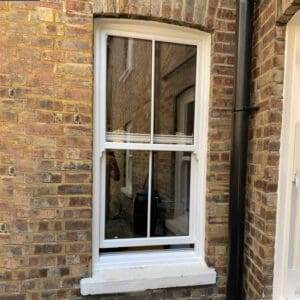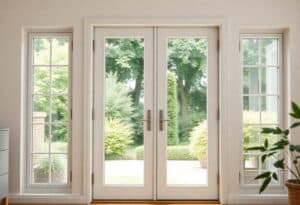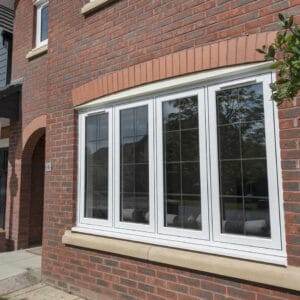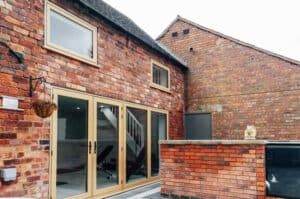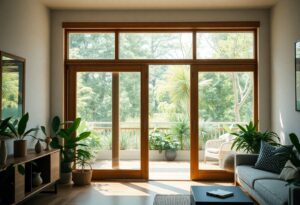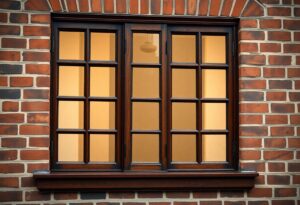Acoustic windows are designed to significantly reduce external noise, providing you with a quieter, more peaceful environment. If you live in a bustling area or near a busy road, these windows can enhance your comfort and productivity. By learning about their features, benefits, and installation requirements, you can make an informed decision on whether they are the right choice for your home. Understanding your options will ensure you invest wisely in high-quality windows that can transform your living space.
What Are Acoustic Windows?
To fully grasp the concept of acoustic windows, it’s vital to understand their purpose in reducing unwanted noise. These specialised windows are designed to provide superior sound insulation compared to standard windows. For a detailed exploration, check out The Complete Guide to Soundproof Windows. Acoustic windows are particularly beneficial in urban settings or locations near busy roads, offering peace and quiet in your living or working spaces.
Definition and Purpose
By definition, acoustic windows are a type of window specifically engineered to minimise sound transmission. Their primary role in soundproofing environments makes them ideal for those seeking tranquility from external noise. Unlike regular windows, acoustic windows incorporate advanced materials and techniques to achieve optimal sound insulation, ensuring a more peaceful indoor atmosphere.
Components and Design
Below the surface, the sound-dampening capabilities of acoustic windows largely stem from their specialised materials and innovative design features. These windows typically utilise multiple layers of glazing, sturdy frame construction, and high-quality sealants to create a tight barrier against sound. Investing in the right materials is vital for your specific needs (your environment can greatly influence this choice).
For instance, the glazing options available, such as laminated or double-glazed panels, play a significant role in enhancing sound insulation. Additionally, the frame construction must be robust, and the use of effective sealants is vital to prevent noise infiltration. Opting for the best combination of materials and design can significantly improve your overall soundproofing results (making informed decisions is key).
Benefits of Acoustic Windows
Even if you live in a bustling area, installing acoustic windows can transform your living environment significantly. These windows not only block out disruptive noise from traffic and construction but also enhance your overall comfort and quality of life. For more details, explore The Ultimate Guide: How to Soundproof Windows, which provides further insights into the benefits of these innovative window solutions.
Noise Reduction
On choosing acoustic windows, you’ll experience substantial noise reduction from external sources. This not only helps in minimising disturbances but also increases your peace at home, promoting a more tranquil atmosphere for relaxation and work.
Energy Efficiency
Efficiency is another noteworthy advantage of acoustic windows. These windows enhance your property’s insulation properties, assisting you in reducing heating and cooling costs, whether for residential or commercial spaces.
A well-insulated space can significantly contribute to your overall energy savings. By installing acoustic windows, you will see a reduction in energy consumption, leading to lower utility bills. Additionally, this improved insulation helps to maintain a more stable indoor temperature, making your environment more comfortable year-round. This positively impacts your lifestyle while also supporting environmental sustainability through decreased energy usage.
Applications of Acoustic Windows
If you live in an area with significant noise pollution, such as urban centres or near busy roads, you may find acoustic windows particularly beneficial. These specialised windows can significantly reduce sound transmission, providing you with a quieter home environment. Investing in acoustic windows can greatly enhance your comfort, making it a wise decision if tranquillity is a priority in your living space (consider your specific noise challenges before selecting acoustic solutions).
Residential Use
Against the backdrop of bustling cities and noisy neighbourhoods, homeowners may seek acoustic windows to create a peaceful sanctuary in their homes. The enhancement of sound insulation can result in lower stress levels and improved quality of life. (Deciding to install acoustic windows can make a significant difference in your daily living experience.)
Commercial and Industrial Use
Commercial spaces, music studios, and industrial facilities often require effective sound management to ensure optimal functionality and compliance with noise regulations. Acoustic windows are important in mitigating disruptive external noises that could impede productivity or lead to penalties for exceeding permissible sound levels. (Choosing the right acoustic solutions can greatly influence the operational efficiency of your space.)
Commercial settings, such as office buildings and performance venues, benefit immensely from the installation of acoustic windows. They not only aid in creating a suitable atmosphere for work or artistic pursuits, but they also help maintain a professional environment where noise interference is minimised. This is especially important in areas where sound control is important for maintaining focus and productivity. (Investing in quality acoustic windows is a pivotal step towards enhancing your commercial space’s usability.)
It is important to evaluate your noise sources and the environments in which you live or work. Choosing the right acoustic solutions, including high-performance acoustic windows, can lead to significant improvements in comfort and productivity. Strong acoustic insulation can help ensure that external noise does not disrupt your daily activities, providing a positive impact on your overall well-being.
Choosing the Right Acoustic Windows
Not all acoustic windows are created equal. You need to carefully assess your specific needs and the environment in which the windows will be installed. Factors to consider in your selection include the STC ratings, which indicate sound insulation effectiveness, and manufacturer certifications to ensure quality. Additionally, think about the installation methods, as improper fitting can compromise the overall performance. (Choosing the right combination will enhance your soundproofing experience).
- STC ratings
- Manufacturer certifications
- Installation methods
Assume that only the best options will suffice for your unique situation.
Professional Installation Services
Before you install acoustic windows, consider the significance of hiring qualified professionals. Their expertise is imperative to ensure that your windows achieve optimal performance in sound reduction. A proper installation can significantly enhance the efficiency of your acoustic windows, preventing any potential leaks or gaps that could diminish their effectiveness.
At this stage, selecting the right installation service plays a pivotal role in the outcome of your project. Qualified professionals are equipped with the knowledge and experience to install your acoustic windows seamlessly. An improper installation could lead to serious issues such as sound leakage or reduced energy efficiency, which can adversely affect your home environment. Make a wise choice and protect your investment by ensuring a proficient installation process.
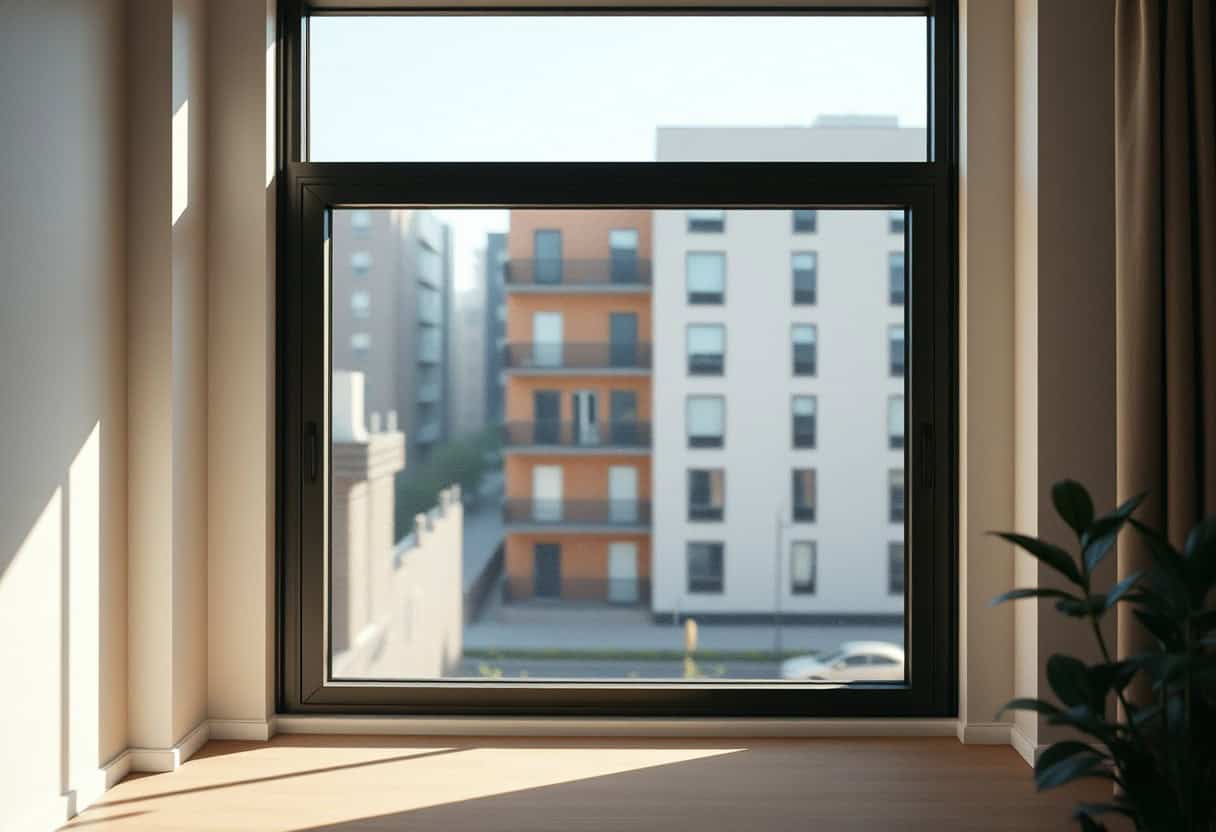
Maintenance and Care for Acoustic Windows
After installation, it is important to maintain acoustic windows to ensure their noise-reducing properties remain effective over time. Regularly check the seals for any gaps or wear, as this can compromise their performance. Cleaning the glass with a soft cloth and non-abrasive cleaner will prevent scratches and maintain clarity. Additionally, perform a visual inspection for signs of damage to the frame or glazing. (Consider consulting a professional if you notice any significant issues.)
Routine Maintenance Practices
At least once a year, you should assess the condition of your acoustic windows. This includes inspecting weather strips and seals, which should be free from cracks or deterioration. Ensure the window tracks are clean and lubricated to prevent sticking. Dust and dirt around the frames can also affect their performance, so maintain a regular cleaning regime. Following these practices will extend the lifespan of your windows and keep them working efficiently.
Common Problems and Solutions
Alongside regular maintenance, it’s important to be aware of common issues that may arise with acoustic windows. If you notice increased noise levels, check for damaged seals, as this may allow sound infiltration. If condensation develops between the panes, it indicates a seal failure, and you may need to replace the entire unit. Ensure that the window frames are correctly secured; loose fittings can reduce efficacy. For any persistent problems, don’t hesitate to seek professional help for repairs.
Common issues such as condensation or reduced sound insulation can signal underlying problems. If you observe moisture between panes, it typically means the seal has failed, requiring replacement of the window unit. Similarly, if the frames appear loose or misaligned, this can compromise your windows’ function, thus it’s advisable to consult an expert for timely repairs. By addressing these issues promptly, you’ll maintain the effectiveness and safety of your acoustic windows.
Cost Considerations for Acoustic Windows
Unlike standard windows, acoustic windows come with a higher price tag, reflecting their specialised design and materials aimed at noise reduction. The overall costs can vary significantly based on factors such as size, style, and any custom features you may require. Installation charges can also influence the final price. It is necessary to weigh these costs against the benefits they provide in terms of comfort and noise levels in your home.
Initial Investment
Between the varying sizes and styles of acoustic windows, the initial investment can differ greatly. Standard models may cost less, but custom options tailored to your specific needs can drive costs higher. Additionally, larger installations generally require more materials and labour, which can further enhance your budget, so consider your priorities before making a purchase.
Long-Term Value
Against the initial expenditure, opting for acoustic windows can yield significant long-term value. Their superior insulation properties often lead to notable energy savings, reducing heating and cooling costs over time. Moreover, enhanced comfort levels and sound quality in your home can positively influence your property’s value, making it an appealing prospect for potential buyers.
For instance, investing in acoustic windows can save you money on energy bills, as they help maintain a stable indoor temperature. This translates to lower utility costs and an overall increase in your property’s value as well. Furthermore, with noise reduction significantly enhancing your living experience, potential buyers are likely to see the value in such investments, justifying the initial outlay.
Conclusion
Considering all points, understanding acoustic windows is crucial for enhancing your living environment and optimising sound insulation. By investing in high-quality materials and choosing the right specifications, you can effectively reduce noise pollution and improve your comfort at home. Be sure to evaluate your specific needs and consult with professionals to ensure you make informed decisions that benefit your lifestyle and property’s acoustic performance.
FAQ
Q: What are acoustic windows?
A: Acoustic windows are specially designed windows that provide enhanced sound insulation. They are constructed using advanced materials and techniques that help to reduce noise transmission from the outside environment, making them an excellent choice for individuals living in noisy urban areas or near traffic. These windows typically feature thicker glass and improved seals to minimise sound leakage.
Q: How do acoustic windows work?
A: Acoustic windows work by utilising multiple layers of glass that are separated by an air or gas-filled space. This design helps to absorb and dissipate sound waves before they can enter the building. Additionally, the use of laminated glass and special seals further enhances the window’s ability to block noise, providing a quieter indoor environment.
Q: What types of noise can acoustic windows help reduce?
A: Acoustic windows are effective in reducing a variety of noise types, including traffic sounds, construction noise, aircraft noise, and general urban sounds. Their performance can vary depending on the frequency of the noise; however, most acoustic windows are designed to significantly diminish both high and low-frequency sounds, contributing to a more peaceful living or working space.
Q: Are acoustic windows more expensive than standard windows?
A: Yes, acoustic windows tend to be more expensive than standard windows due to their specialised construction and materials. However, many homeowners find the investment worthwhile, as the reduction in noise pollution can greatly enhance comfort and wellbeing. Additionally, acoustic windows may offer improved energy efficiency, potentially leading to long-term savings on energy bills.
Q: Can I install acoustic windows myself?
A: While it is technically possible to install acoustic windows as a DIY project, it is generally recommended to hire a professional for the installation. Proper installation is key to achieving the best soundproofing results, and professionals have the experience and tools necessary to ensure that windows are sealed correctly and fitted securely.
Q: Do acoustic windows provide any thermal insulation benefits?
A: Yes, acoustic windows also offer thermal insulation benefits. Their multi-layered design not only helps to block sound but also reduces heat transfer. This means that acoustic windows can help maintain a comfortable indoor temperature, enhancing energy efficiency and potentially lowering heating and cooling costs over time.
Q: How do I choose the right acoustic windows for my home?
A: When dicking out acoustic windows, consider factors such as the level of noise pollution in your area, the type of glass used, and the window’s overall design. It’s important to consult with a specialist who can advise you on the best options for your specific needs and ensure that the windows meet any relevant building regulations. Additionally, researching reputable manufacturers can help in finding high-quality acoustic windows.

